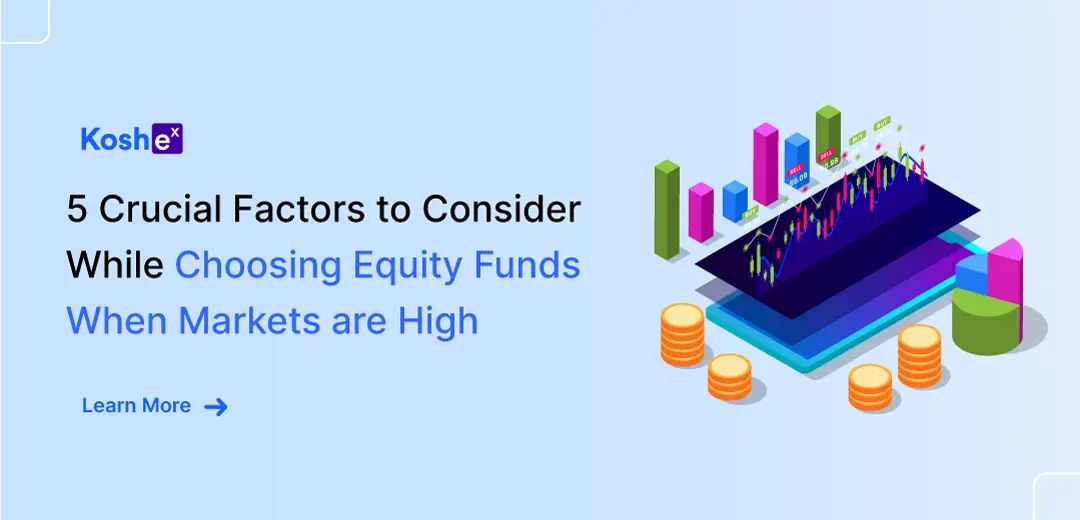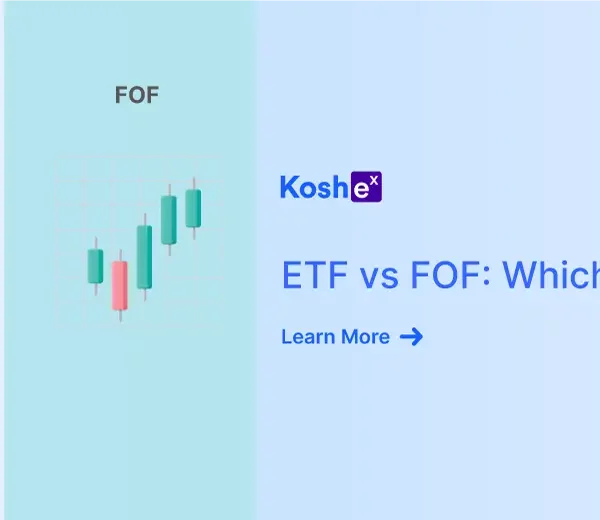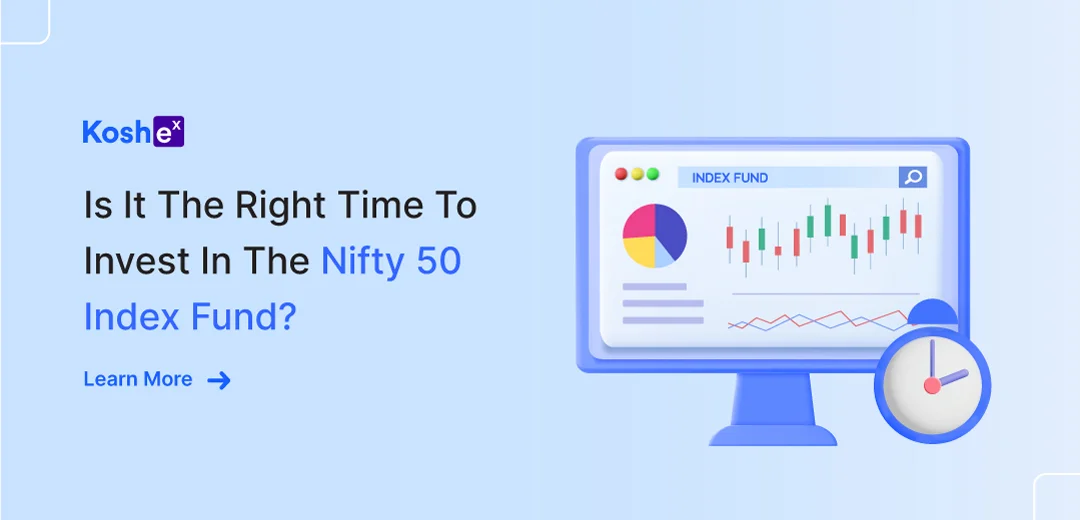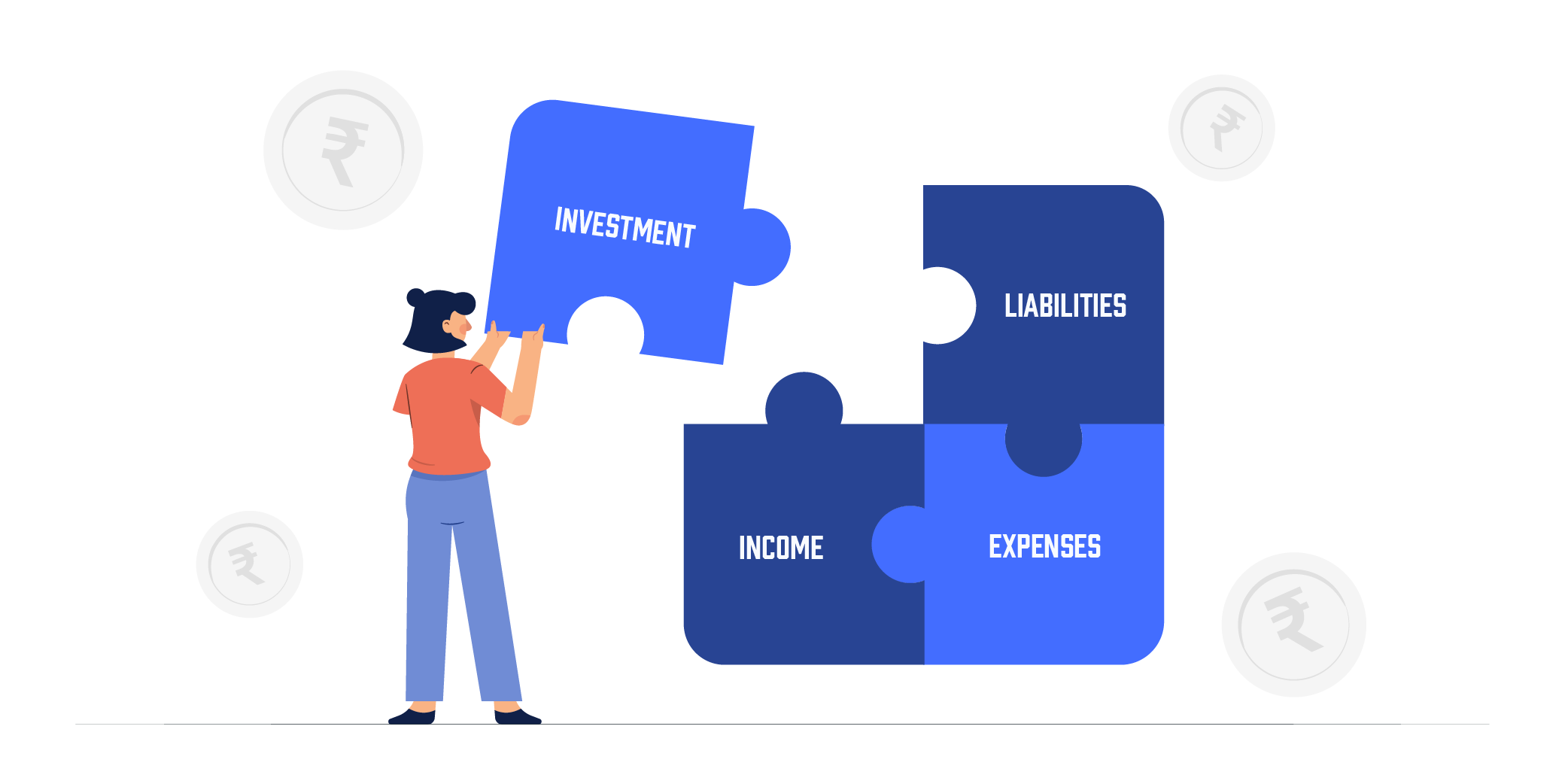In a time of high markets, learn about the 5 important things to think about when choosing equity funds.
Equity Mutual Funds are investments in the stocks and shares of a company. Also known as Growth Funds, they are a convenient way for you to access the vast world of Stocks without needing extensive market knowledge. These funds aim to maximize returns while managing risks.
In the financial landscape, a bullish market gets investors buzzing with excitement. However, amidst this delight, a crucial question arises. How can one navigate equity funds and select the perfect investment opportunity to ride this bullish market?
As you invest in mutual funds online, choosing the right type of equity fund becomes even more critical when markets are riding high. It requires meticulous research of the current market conditions and the correct knowledge of your risk appetite. Otherwise, you can easily get caught up in the euphoria and overlook potential risks.
We present five pivotal factors to consider when selecting equity funds in a bullish market to aid you in this endeavor. These factors let you capitalize on the upward trajectory while mitigating potential risks.
Confidently navigate markets and increase your chances of long-term investment success with Koshex, your trusted partner in financial success. We offer valuable insights, personalized guidance, and a range of carefully curated equity funds tailored to your investment needs.
Factors to Consider While Investing in a Bullish Market
The appeal of potential gains may tempt investors to jump into the market when it’s high. But it is crucial to approach the market with a prudent and strategic mindset.
Here are five major factors to consider when investing during a bull market:
Historical Performance
As you think of investing in mutual funds during high markets, get a detailed insight into the fund’s historical performance. While short-term gains are tempting, look for long-term benefits. Evaluating how a fund has performed over different market cycles provides a clear picture of its resilience and potential to navigate through volatile times.
A fund with consistent positive returns over an extended period indicates its ability to withstand market fluctuations. It is a deciding aspect, particularly during high markets with the potential for overvaluation.
Examining a fund’s historical performance lets you identify patterns, trends, and potential risks. Understand how the fund reacted in different scenarios to get insights into its risk management strategies and the fund manager’s ability to make sound investment decisions.
Expense Ratio and Fees
When selecting equity funds, pay close attention to the expense ratio and associated fees. High expenses can significantly impact your investment returns over time, eating into your profits and reducing the overall growth potential of your portfolio.
The expense ratio represents the percentage of the fund’s assets and the annual cost of managing them. It covers expenses for administrative fees, management fees, operating costs, and other charges incurred by the fund. It is important to note that the expense ratio is subtracted from the fund’s returns.
In high markets, it is wise to reduce costs when potential returns are already favorable. By choosing funds with lower expense ratios, you let a higher proportion of your investment work towards generating better returns. It has a significant impact on your long-term investment performance.
Investment Strategy
It is essential to carefully assess your fund’s investment approach while selecting equity funds in a high market. A fund’s strategy should match your investment goals and risk tolerance to ensure that your objectives and the fund’s approach are in sync.
Moreover, it is vital to understand whether the fund focuses on growth, value, or a blend of both. Growth funds typically invest in companies with a strong potential for earning above-average growth. These funds are for investors who want to grow their money and are willing to take on higher risks.
On the other hand, value funds focus on stocks that are undervalued by the market. They aim to benefit from price increases when the market realizes the actual value of these stocks. So choose your equity mutual fund scheme wisely.
Risk Management and Diversification
Effective risk management safeguards your investments during market turbulence. When assessing a fund’s risk management approach, consider the fund’s historical performance during both up and down markets.
Besides, diversification is a fundamental risk management strategy that distributes investments across different asset classes, geographical regions, and market sectors. A well-diversified fund reduces the impact of any specific downturn or unfavorable event on the overall portfolio.
As you allocate investments across various assets and regions, the fund potentially benefits from the performance of different sectors and geographical areas, balancing the portfolio’s risk and return.
Fund Size and Liquidity
The size of a fund and its liquidity affects its performance and your investment experience. Effective capital deployment becomes difficult for a larger fund, especially in high-risk markets with limited attractive investment opportunities. On the other hand, a smaller fund faces liquidity issues when managing large inflows or outflows of investor funds.
You can assess a fund’s ability to navigate volatile markets and take maximum advantage of investment opportunities by evaluating the size and liquidity of the fund. It is always good to review the fund’s historical performance relative to its size to understand how it has handled assets during various market conditions.
Final Takeaways
Investing is a long-term endeavor. And it is necessary to stay disciplined, focus on your objectives, and be patient. It needs careful thought and an informed decision to invest in the best equity funds will help you reap the rewards of a bull market.
You position yourself for success in high markets by assessing historical performance, expense ratio and fees, investment strategy, risks, diversification, and fund size and liquidity. These factors help navigate market complexities, reduce risks, and maximize returns.
As an investor, you can improve your investment experience with these insights and make wise selections in a bullish market. But keep in mind that investing involves risks, and there are no guarantees of returns. So, it becomes necessary to regularly monitor your investments, stay updated on market trends, and review your investment strategy.
To take control of your investments and secure your financial future, sign up with Koshex. As your trusted partner in financial success, Koshex offers valuable insights, personalized guidance, and a range of carefully curated equity funds tailored to your investment needs. Start your journey towards investment success with Koshex today.
Frequently Asked Questions (FAQs)
How do I evaluate the historical performance of an equity fund?
Assess the fund’s performance over various market cycles and compare it to relevant benchmarks. Look for consistency and stability in delivering returns over the long term.
Why is diversification important in a bullish market?
Diversification helps reduce the effect of market volatility by spreading your investments across different sectors, regions, and asset classes. It provides stability and mitigates risks associated with specific market highs and lows.
What role does risk management play in equity fund selection?
Effective risk management helps protect your investments during market turbulence. Look for funds with a proven track record of managing risks and guiding through different market conditions.









Leave a Comment